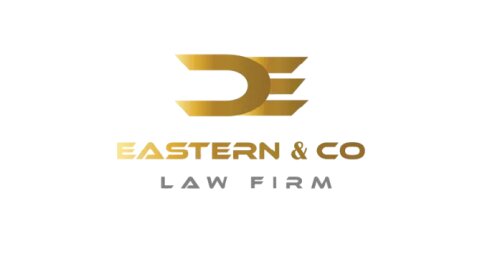Best Hiring & Firing Lawyers in Dokki
Share your needs with us, get contacted by law firms.
Free. Takes 2 min.
List of the best lawyers in Dokki, Egypt
1. About Hiring & Firing Law in Dokki, Egypt
Dokki is a district within Giza Governorate in Cairo and hosts many private sector employers. The core rules governing hiring and firing in this area come from national legislation that covers private sector employment. In practice, employers and employees in Dokki rely on written contracts, clear termination grounds, and due process to avoid disputes.
Egyptian labour law emphasizes that dismissals must be for a valid reason and carried out with proper procedural steps. The framework aims to protect workers while allowing employers to manage performance and structural changes. Many disputes arise from unclear contract terms, missing notice, or perceived discrimination, which makes timely legal guidance valuable.
For private sector workers in Dokki, the central rules come from national legislation rather than local ordinances. A lawyer specializing in Hiring & Firing can help interpret contract terms, advise on due process, and assess severance rights and notice requirements. This guidance is especially important when disputes could reach the labour courts in the Cairo region.
According to the International Labour Organization, Egypt's labour framework relies on due process, clear contract terms and defined severance rights in the private sector.ILO - Egypt labour standards
Legislationline presents the text and commentary on Egypt's Labour Law No. 12 of 2003 and its amendments, which govern hiring and firing in private employment.Legislationline - Egypt Labour Law
2. Why You May Need a Lawyer
- Unfair termination claims from a Dokki employee - An employee alleges dismissal due to gender, pregnancy, or protected activity. A lawyer can assess whether the grounds were legally valid and help pursue reinstatement or compensation if the dismissal violated the law.
- Discrepancies in severance or end-of-service benefits - An employer in Dokki refuses full severance or miscalculates end-of-service pay. A legal counsel can review contracts, calculate entitlements, and negotiate a fair settlement.
- Disciplinary dismissals with insufficient due process - A worker believes a disciplinary dismissal lacked hearing, warnings, or documentation. A lawyer can evaluate procedural compliance and file timely claims if needed.
- Contract type issues for a Dokki business - A fixed-term contract ends and the employer opts not to renew without a clear basis. A lawyer can interpret the contract, advise on renewal rights, and handle potential compensation claims.
- Collective redundancy or downsizing in a Dokki company - If a business restructures and faces multiple terminations, legal guidance is needed to follow notice, criteria, and government notification requirements.
- Pregnancy or discrimination concerns - Termination or adverse treatment during pregnancy or due to protected status requires careful analysis and possible remedies through court or settlement.
3. Local Laws Overview
The primary legal framework for Hiring & Firing in the private sector in Dokki comes from:
- Law No. 12 of 2003 on Labour in the Private Sector - Defines contract types, termination grounds, notice periods, and severance rights for private employers and employees. This law sets the baseline for hiring, discipline, and dismissal practices in most Dokki workplaces.
- Executive Regulations of Labour Law No. 12 of 2003 - Provide procedural rules for disciplinary actions, hearings, and the steps required before terminating an employee. These regulations help ensure due process in firing decisions.
- Protection provisions for pregnancy and anti-discrimination - The Labour Law contains anti-discrimination protections and maternity safeguards designed to prevent dismissals during pregnancy and for other protected characteristics.
Recent trends in enforcement and guidance emphasize documentation, clear contract terms, and timely dispute resolution. For more detailed interpretation and updates, see the authoritative sources referenced below.
ILO notes ongoing emphasis on due process and worker protections in Egypt's private sector labour framework.ILO - Egypt labour standards
Legislationline provides the text and explanatory materials for Egypt's Labour Law No. 12 of 2003 and amendments relevant to hiring and firing.Legislationline - Egypt Labour Law
4. Frequently Asked Questions
What is the basic definition of an employment contract under Egyptian law?
An employment contract in Egypt can be open-ended or fixed-term. It outlines duties, compensation, and termination terms. Both parties should have a written agreement where possible.
How do I determine if a dismissal is legally justified in Dokki?
Legally justified dismissals require a valid reason under Labour Law No. 12 of 2003 and may require formal notice, warnings, or a disciplinary hearing. Documentation matters.
When should an employer provide notice before termination?
Notice periods depend on contract type and tenure. The contract should specify the notice; if not, applicable regulations typically require a reasonable written notice period.
Where can I file a labour dispute in the Cairo region?
Labour disputes from Dokki are generally heard in labour courts within the Cairo region. A lawyer can guide you through filing and preparation.
Why might a termination be considered discriminatory?
Dismissals based on gender, pregnancy, religion, or protected status are prohibited. A lawyer can assess evidence and advise on remedies or claims.
Can a fixed-term contract be terminated early?
Early termination of a fixed-term contract may be permitted only for specified causes or mutual agreement, and often requires compensation or notice as set in the contract.
Should I obtain written warnings before dismissal for performance issues?
Yes. Written warnings, performance improvement plans, and documented reviews help demonstrate due process and reduce litigation risk.
Do I need a lawyer to handle a termination or severance claim?
While not mandatory, a lawyer improves odds of a fair outcome, ensures compliance with procedures, and can negotiate settlements or represent you in court.
Is it possible to reinstate an employee after an unlawful dismissal?
Reinstatement is possible in some cases, typically as a remedy for unlawful dismissal or discriminatory termination, depending on court rulings or settlements.
How long does a typical labour dispute take to resolve in Egypt?
Disputes can range from a few weeks for initial negotiations to several months for court decisions. Complex cases may extend longer depending on court schedules.
What evidence should I gather when facing termination in Dokki?
Contracts, amendments, payroll records, performance evaluations, notices, meeting minutes, and any communications related to the dismissal are important.
5. Additional Resources
- International Labour Organization (ILO) - Egypt labour standards - Provides guidance on national labour practices, due process, and worker protections in Egypt. Visit ILO Egypt
- Legislationline - Egypt Labour Law No. 12 of 2003 - Offers the text and commentary on the private sector labour law and amendments. Egypt Labour Law on Legislationline
- World Bank - Egypt overview - Context on Egypt's business environment and labour market considerations that influence hiring and firing practices. World Bank - Egypt
6. Next Steps
- Clarify your goal and collect relevant documents within 1 week. Gather the contract, amendments, payroll records, and any dismissal notices.
- Identify the key issues and potential remedies with a short list of questions for a lawyer. Schedule a consult within 1-2 weeks.
- Research Hiring & Firing lawyers in Dokki and the Cairo region. Prioritize practitioners with private sector labour experience.
- Schedule initial consultations with 2-3 lawyers to compare approaches, fees, and timelines. Expect 30-60 minutes per consult.
- Obtain a written engagement letter or retainer agreement. Confirm scope, fees, and anticipated steps up to a resolution.
- Decide on a strategy for negotiation or litigation. Your lawyer can draft notices, responses, and settlement proposals.
- If a dispute arises, prepare for potential court proceedings and set realistic timelines with your counsel.
Lawzana helps you find the best lawyers and law firms in Dokki through a curated and pre-screened list of qualified legal professionals. Our platform offers rankings and detailed profiles of attorneys and law firms, allowing you to compare based on practice areas, including Hiring & Firing, experience, and client feedback.
Each profile includes a description of the firm's areas of practice, client reviews, team members and partners, year of establishment, spoken languages, office locations, contact information, social media presence, and any published articles or resources. Most firms on our platform speak English and are experienced in both local and international legal matters.
Get a quote from top-rated law firms in Dokki, Egypt — quickly, securely, and without unnecessary hassle.
Disclaimer:
The information provided on this page is for general informational purposes only and does not constitute legal advice. While we strive to ensure the accuracy and relevance of the content, legal information may change over time, and interpretations of the law can vary. You should always consult with a qualified legal professional for advice specific to your situation.
We disclaim all liability for actions taken or not taken based on the content of this page. If you believe any information is incorrect or outdated, please contact us, and we will review and update it where appropriate.










